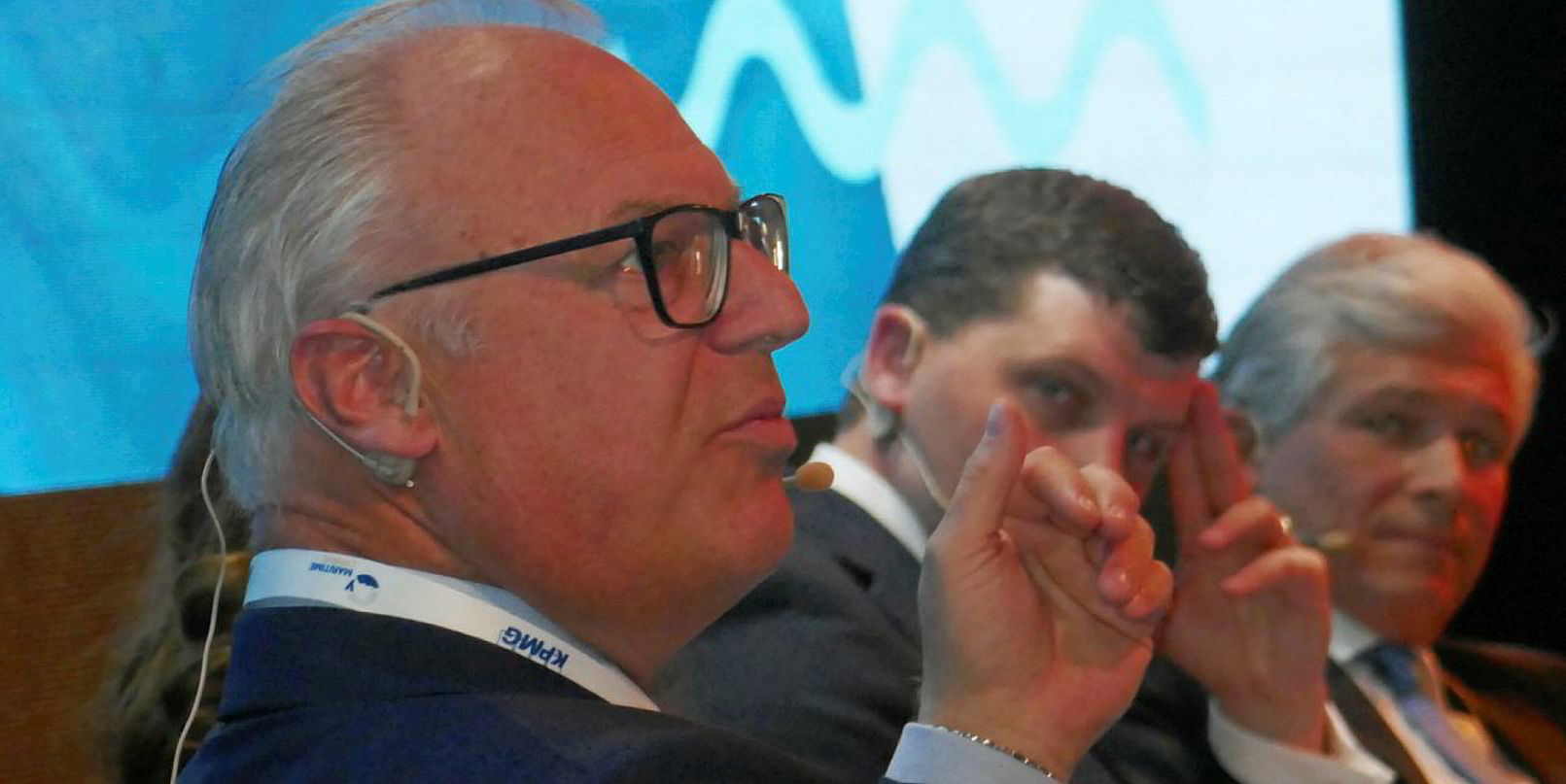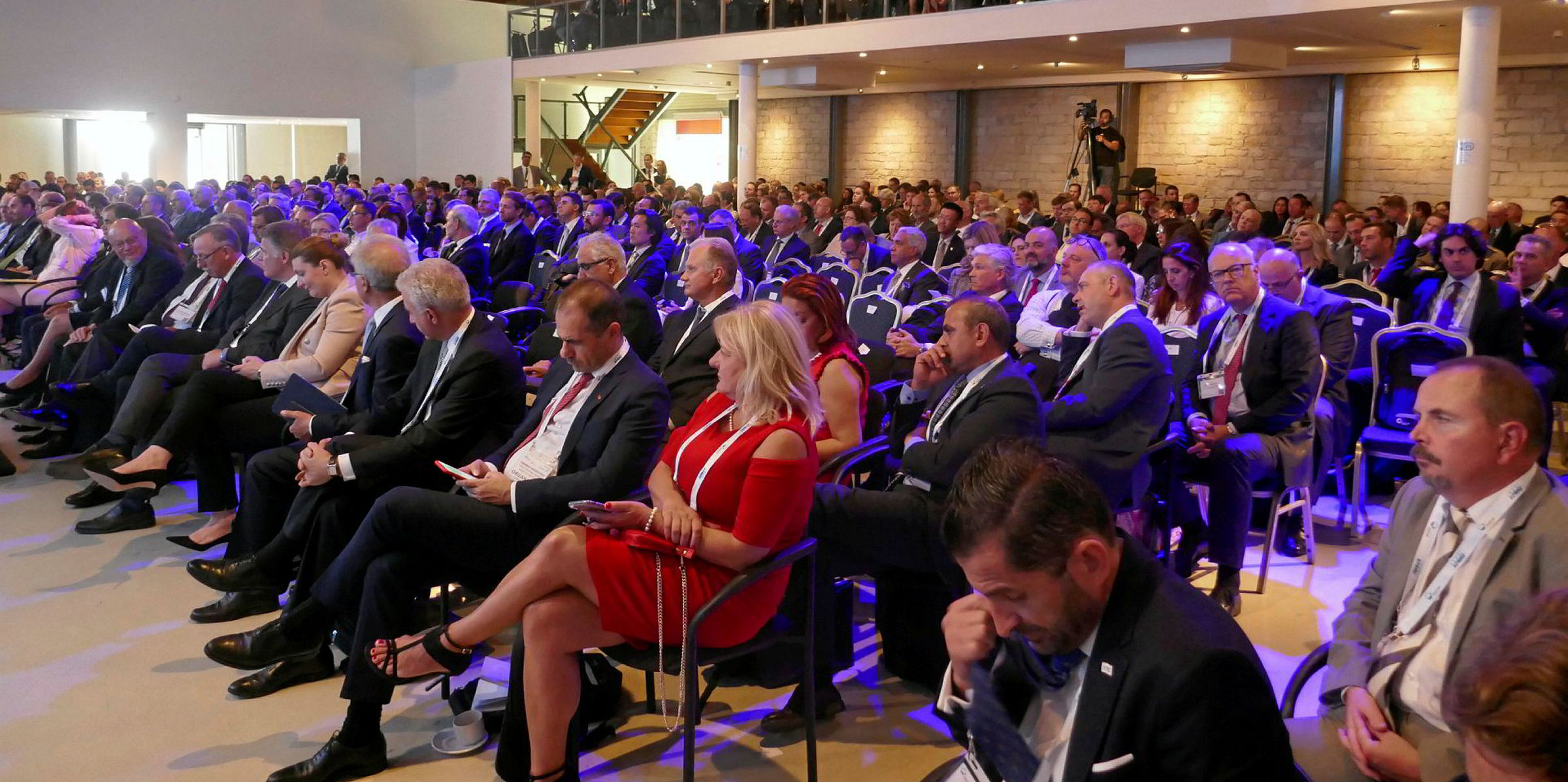Natasa Pilides, head of Cyprus’ shipping ministry, received glowing praise from her boss for boosting the country’s status as a maritime hub.
Setting up the ministry made life easier for local shipping companies, and that shows in the numbers, President Nicos Anastasiades said in Limassol at the 7 October opening of Maritime Cyprus, a state-backed forum that marked its 30th anniversary this year.
Since the ministry was established in March 2018, the number of companies registered under the country’s tonnage tax system has jumped from 168 to 215, Anastasiades said.

That includes Steamship Mutual and the London P&I Club, which set up an office there as insurance against a disorderly exit by the UK from the European Union. “Brexit has been a blessing to Cyprus,” one local shipping player said.
Cyprus, already Europe’s biggest shipmanagement hub, saw revenues from that activity rise by 9% last year, to $1.13bn. Shipping capacity registered under the tonnage tax regime jumped to a record 24.5m gt, Anastasiades said.
To drive the point home, Maritime Cyprus bestowed an award on Safe Bulkers, a company with Cypriot roots that has relocated most of its activities to Limassol from Athens over the past four years.

“I personally moved to Cyprus with my family and I’ve never regretted it,” Safe Bulkers chief executive Polys Hajioannou said during the ceremony.
Limassol is developing into a full-blown maritime hub, with an increasing number of shipmanagement companies, lawyers, bankers and P&I brokers setting up shop.
Pilides, whose formal title is deputy minister, wants to attract even more firms by restructuring and fully digitalising her ministry, as well as updating the tonnage tax regime.
Instituted nine years ago, Cyprus’ tonnage tax is much lower than Greece. On the other hand, it is higher than that of competing, fast-growing registries, such as Malta.

Cyprus’ maritime rise faces other challenges. Its success in attracting shipping talent may carry the seeds of its demise. Living space is getting short in Limassol, an attractive seaside city drawing ever more expatriate workers, and the cost of living is increasing.
A Greek expat working in the city said she buys as much as she can on her trips home now, including visits to the hairdresser. “Everything’s just so much cheaper there,” she said.
Political issues also loom over Cyprus. The growth of its flag is still hemmed by a Turkish embargo that bans Cyprus-registered ships from doing business in Turkish waters.

Untapped offshore natural gas reserves are a potential boon to the Cyprus maritime hub but only if they do not lead to conflict with Turkey, which lays its own claims on them.
On the day Maritime Cyprus opened, Turkey sent a ship to conduct test drills in an area in the Eastern Mediterranean that Nicosia has earmarked for exploitation by private contractors.
To thwart similar Turkish moves in recent weeks, Cyprus sought Interpol arrest warrants against crews of drillships that it says are violating its sovereign rights.
Cyprus’ shipping could do without the brinkmanship.





